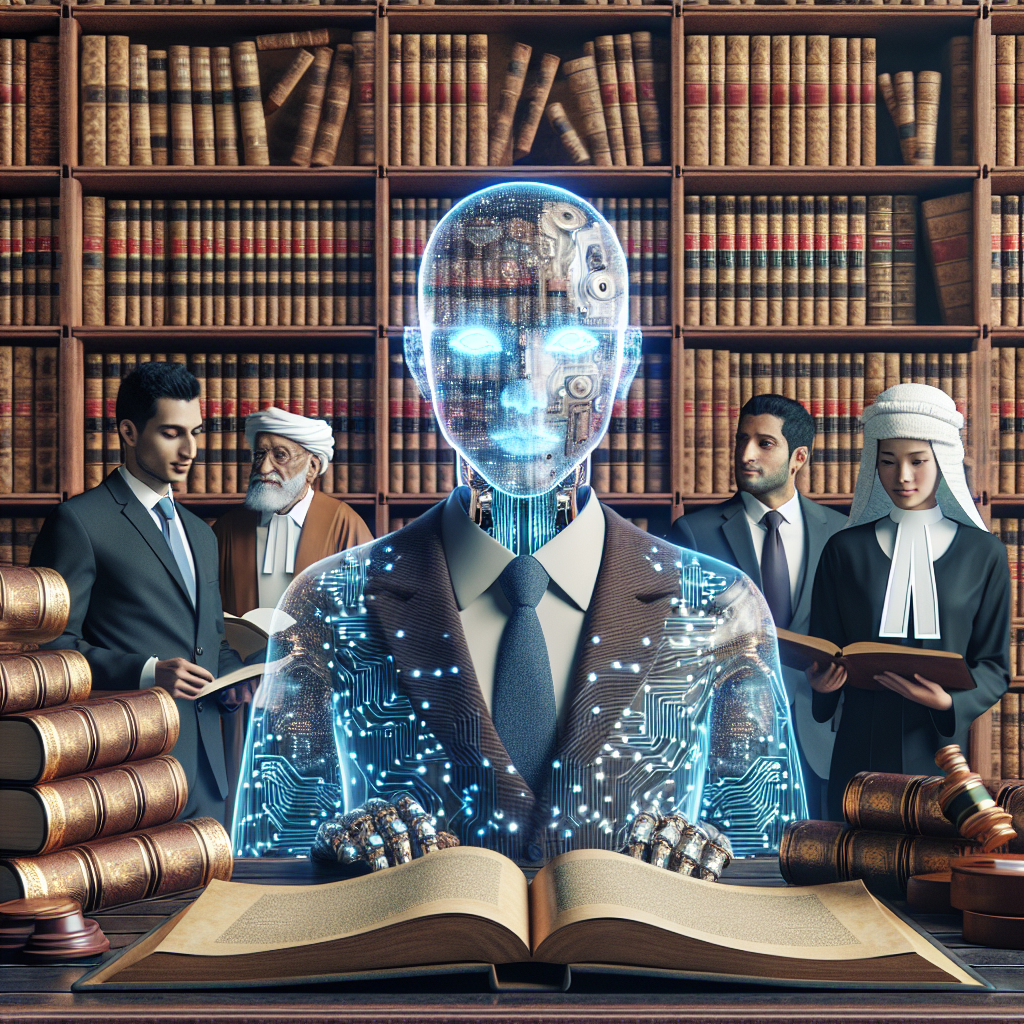The Integration of AI in Legal Practice Workflow
In recent years, artificial intelligence (AI) has been making significant strides in various industries, including the legal sector. AI has the potential to revolutionize the way legal professionals work, by automating repetitive tasks, streamlining processes, and providing valuable insights and analysis. In this article, we will explore the integration of AI in legal practice workflow, its benefits, challenges, and the future implications for the legal profession.
Benefits of AI in Legal Practice Workflow
1. Automation of repetitive tasks: Legal professionals spend a significant amount of time on repetitive tasks such as document review, contract analysis, and legal research. AI can automate these tasks, freeing up time for lawyers to focus on more complex and strategic work.
2. Improved efficiency and accuracy: AI-powered tools can analyze vast amounts of data quickly and accurately, leading to more efficient decision-making and better outcomes for clients. For example, AI can help predict the outcome of legal cases based on historical data, enabling lawyers to better strategize and prepare for litigation.
3. Enhanced research capabilities: AI can assist lawyers in conducting legal research by quickly scanning through vast databases of case law, regulations, and other legal documents. This can help lawyers find relevant information faster and stay up-to-date on the latest legal developments.
4. Cost savings: By automating repetitive tasks and streamlining processes, AI can help reduce the overall costs of legal services. This can make legal services more accessible to a wider range of clients and improve the profitability of law firms.
Challenges of AI in Legal Practice Workflow
1. Data privacy and security concerns: Legal professionals deal with sensitive and confidential information on a daily basis. There are concerns about the security of data stored and processed by AI-powered tools, as well as the potential for data breaches and misuse of information.
2. Ethical considerations: The use of AI in legal practice raises ethical questions about the role of technology in decision-making, the potential bias in AI algorithms, and the accountability of AI systems. Legal professionals must navigate these ethical considerations to ensure that AI is used responsibly and in compliance with legal and ethical standards.
3. Integration with existing workflows: Implementing AI in legal practice requires integrating new technologies with existing workflows and processes. This can be challenging, as it may require training staff, updating systems, and overcoming resistance to change within the organization.
4. Limited understanding of AI: Many legal professionals may not have a deep understanding of AI technology and its potential applications in the legal sector. Education and training are essential to help lawyers understand the capabilities and limitations of AI and how it can be leveraged in their practice.
Future Implications of AI in Legal Practice
The integration of AI in legal practice is still in its early stages, but the potential implications for the legal profession are vast. As AI technology continues to advance, we can expect to see the following developments in the future:
1. Increased efficiency and productivity: AI will continue to automate repetitive tasks, streamline processes, and improve the efficiency of legal practice. This will enable legal professionals to work more effectively and deliver better outcomes for their clients.
2. Enhanced decision-making: AI-powered tools can provide valuable insights and analysis to help lawyers make more informed decisions. By analyzing data and identifying patterns, AI can help lawyers predict outcomes, assess risks, and develop more effective strategies.
3. Improved access to justice: AI has the potential to make legal services more accessible and affordable to a wider range of clients. By reducing costs and increasing efficiency, AI can help bridge the gap between the demand for legal services and the availability of legal professionals.
4. Transformation of legal education: The integration of AI in legal practice will also have implications for legal education and training. Law schools and professional development programs will need to incorporate AI technology into their curricula to prepare the next generation of legal professionals for the changing landscape of the legal profession.
FAQs
Q: How can AI help with legal research?
A: AI-powered tools can assist lawyers in conducting legal research by quickly scanning through vast databases of case law, regulations, and other legal documents. This can help lawyers find relevant information faster and stay up-to-date on the latest legal developments.
Q: Is AI replacing lawyers?
A: AI is not replacing lawyers, but rather augmenting their capabilities and improving the efficiency of legal practice. While AI can automate repetitive tasks and streamline processes, the expertise and judgment of human lawyers are still essential for complex legal work.
Q: What are the ethical considerations of using AI in legal practice?
A: The use of AI in legal practice raises ethical questions about the role of technology in decision-making, the potential bias in AI algorithms, and the accountability of AI systems. Legal professionals must navigate these ethical considerations to ensure that AI is used responsibly and in compliance with legal and ethical standards.
Q: How can legal professionals stay updated on AI technology?
A: Legal professionals can stay updated on AI technology by attending conferences, workshops, and training programs on AI in the legal sector. They can also engage with AI vendors, legal tech startups, and industry experts to learn about the latest developments in AI technology and its applications in legal practice.
In conclusion, the integration of AI in legal practice workflow has the potential to transform the legal profession by improving efficiency, enhancing decision-making, and increasing access to justice. While there are challenges and ethical considerations to navigate, the benefits of AI in legal practice are significant and will continue to shape the future of the legal profession. Legal professionals must embrace AI technology and adapt to the changing landscape of the legal sector to remain competitive and deliver value to their clients.

